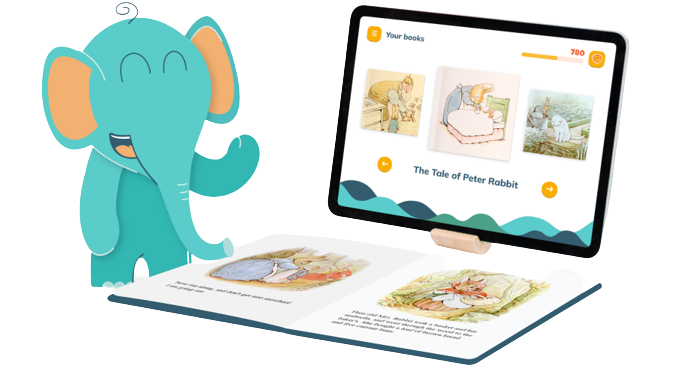3 Word Family Games to Strengthen Decoding Skills
Get your young reader excited about practicing phonics skills with these fun, multisensory games.

Get your young reader excited about practicing phonics skills with these fun, multisensory games.

If you have a kindergartener or first-grader at home, you know the hard work that goes into sounding out (aka decoding) each word. Wouldn’t it be great if there was something you could do to help simplify decoding for your early reader?
There is! You can lighten your reader’s cognitive load with word families.
So what, exactly, is a word family? It’s simply a group of words that follow the same sound and spelling pattern at their ends. Think cat, bat, and hat. Or bin, fin, and pin.
The study of word families helps a child make the connection between manipulating spoken language and changing the first sound in a word still makes for excellent practice. It also quickly increases the number of words a child can read and spell.
A word family is a group of words that follow the same sound and spelling patterns at their ends. Think cat, bat, and hat. Or bin, fin, and pin.
Maybe the best reason to play word family games with your young reader is that they’re easy to set up and fun! There are tons of variations of word family games out there, but these three were by far the most popular with my students.
Grab some of the plastic Easter eggs that we all seem to have in our holiday supplies and turn each one into a word family game. Write the starting sound on the large part of the egg, and the ending sounds on the smaller part.
Have your child read through the words as they twist the two halves of the egg. You can even mix and match egg tops and bottoms to see what other words you can make.

Word spinners are easy to make. You'll just need two paper cups and a pair of scissors.
Write the starting sounds on the inner cup. Next, write the word family ending on the outer cup at the same level as the inner cup. Then cut an opening to the left of the word family ending and place it over the inner cup. Have your child twist the cups and read the words.
This game is great because it bridges the gap from reading to spelling, and because it just takes a piece of paper and a pencil.
Draw a ladder with 4-6 rungs in it. Then write the word family ending (like at, op, or un) that you want to practice at the bottom. You and your child then take turns thinking of starting letters to make words for that word family. Your child can also try thinking of all the words on their own. The object of the game is to get to the top of the ladder.

Plastic Easter eggs, paper cups, and scratch paper can all easily become word family games using the lists below.
Now that you’ve got an idea of how quick and easy the games are, it’s time to make this even easier on you. It’s surprisingly hard to come up with word families off the top of your head, so here’s a cheat sheet for you to use when you’re making a word family game. It’s ideal for kindergarten through early first-grade levels, and goes from easiest to hardest.
You can download this PDF to use yourself at home!
.png)
Word family activities are most beneficial when the word families you’re using are at your young reader’s level, not above.
So how do you know which word families to start with? An easy test for this is to have your child sound out one word in a word family. If they can manage it, then games with that particular word family won’t be too hard for them.
Word family activities are very beneficial to early readers, but playing with word families alone is only one part of a comprehensive, phonics-based curriculum1.
Looking for more evidence-based support for your young reader? We’ve designed Ello for even more robust at-home or on-the-go coaching. It uses research-based phonics instruction that helps advance decoding skills—while building confidence and motivation!

If your child can successfully sound out a sample word from a given word family, they are ready to play games with that word family. So if they can sound out “cat,” they’re ready to practice “at” words.
.svg)
Parker, Stephen. (2022, Feb 25). “The Essential Linnea Ehri: A Research-Based Explanation of How Children Learn to Read Words.” Parker Phonics. https://www.parkerphonics.com/post/the-essential-linnea-ehri.